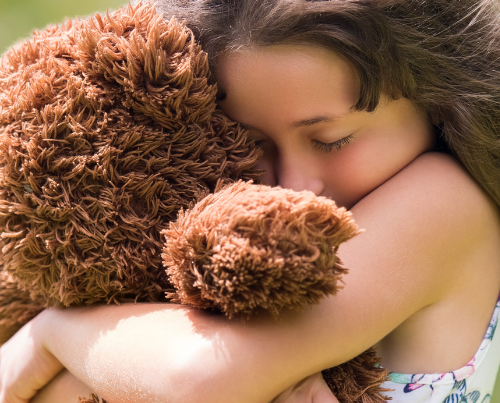We all remember the tale of Mary and her little lamb, and we may treasure memories from when a friendly dog or inquisitive feline trailed behind an elementary-school classmate and disrupted the morning routine.
Those are cute images, but something that regularly follows children in our community to schools is far less endearing. When domestic violence occurs in a child’s home, it frequently makes appearances in the classroom or on the playground. That doesn’t mean the child is physically abused in the presence of classmates. Instead, abuse emerges in insidious ways.
In school-age children, the effects of domestic violence manifest themselves in lower test scores, acting out in classrooms, missing multiple days of school, aggressive behavior toward classmates, and even bullying. Long-term, domestic violence in the home can even reduce the likelihood that a student will pursue additional education after high school.
When you work with children who have been surrounded by an abusive environment, it becomes easier to understand how it affects their daily lives. At home, they feel powerless, but the abuser isn’t at school, so they feel they can take control and be more powerful. Instead of hiding in their rooms to avoid what happens, they want people to notice them. They want to feel respected and heard. They desperately want someone’s attention, and if acting out ensures everyone will turn and look their way, it’s what they’ll do.
People know Sheltering Wings provides a safe place for adults who are victims of domestic violence, but few realize that at any given moment, more children than adults live under our roof. We have to meet the needs of those we call the silent victims of abuse, first to address the trauma that has obscured what should be the carefree years of childhood, and second to ensure they don’t repeat the cycle of abuse as adults. Far too often, children who witness abuse grow up to become abusive adults or victims. It’s what they’ve learned from the adults around them.
We created our Children’s Program to address both short- and long-term needs, drawing upon our partners in the community to help us rebuild these young lives. We restore their voices by giving them time with mentors who listen to what they have to say. We rebuild their confidence by allowing tutors to help them master their schoolwork. We enhance their well-being with an atmosphere in which they truly feel safe and secure. And we help them learn about and practice having healthy relationships with others.
As an adult, when you invest time in young people, you can have a significant impact on their outlook, attitude, and understanding of what is healthy and appropriate in a relationship. Your own behavior in your relationships provides a model they can follow. And each time we teach children about healthy behavior, we reduce the chances that domestic violence will follow others to school or anywhere else, and we begin to break the cycle of abuse.






